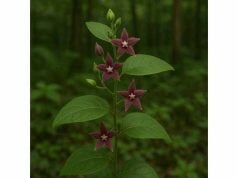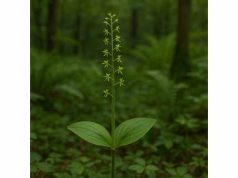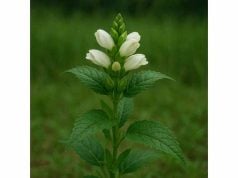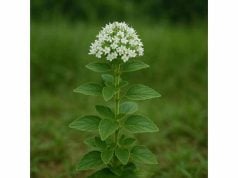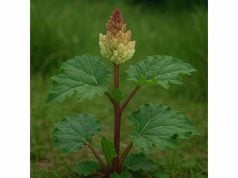
Tejocote, a small pome fruit native to Mexico and Central America, is celebrated for its multifaceted health benefits and traditional medicinal uses. Rich in bioactive compounds including pectins, polyphenols, and antioxidants, this fruit has been an integral component of natural remedies for centuries. Traditionally employed to aid digestion, support weight management, and boost overall vitality, tejocote is also appreciated for its anti-inflammatory and diuretic properties. Its versatility extends into culinary applications, notably as a festive ingredient in seasonal beverages and desserts, as well as in modern nutraceutical formulations aimed at promoting holistic well-being.
Table of Contents
- Botanical Overview and Identification
- Phytochemical Analysis and Key Constituents
- Health Advantages and Core Qualities
- Practical Applications and Safety Guidelines
- Research Insights and Study Findings
- Frequently Asked Questions
Botanical Overview and Identification
Tejocote is the common name given to the fruit of Crataegus mexicana, a member of the Rosaceae family. This small, apple-like fruit typically measures 2 to 3 centimeters in diameter and is distinguished by its smooth, reddish-orange to deep yellow skin when fully ripened. The plant itself is a deciduous shrub that can grow up to 4–6 meters in height, with serrated, oval leaves that turn vibrant shades in autumn.
Native to the highlands of Mexico and Central America, tejocote thrives in temperate climates with well-drained, slightly acidic soils. It is commonly found in oak and pine forests, where the environmental conditions, such as moderate rainfall and cooler temperatures, contribute to its unique flavor and nutritional properties. The fruit is typically harvested in the winter months, coinciding with traditional festive seasons in Mexico, where it is used in both culinary and medicinal preparations.
The plant’s taxonomy places it among the hardy and resilient species of the Crataegus genus, often known for producing fruits that are both ornamental and functional. The vibrant color and firm texture of the tejocote fruit make it an attractive addition to gardens and agroforestry systems, while its hardiness has facilitated its spread and cultivation in various regions beyond its native range.
Historically, tejocote has played a vital role in traditional Mexican medicine and culture. Indigenous communities have long valued the fruit not only for its taste but also for its perceived therapeutic properties. Its use in rituals and as a natural remedy was passed down through generations, contributing to its enduring legacy in herbal medicine. Today, both small-scale farmers and commercial growers prioritize quality and sustainability in cultivating tejocote, ensuring that its unique characteristics are preserved.
Modern botanical studies have focused on the genetic diversity and adaptive traits of Crataegus mexicana, revealing that environmental factors such as altitude and soil composition significantly influence the fruit’s chemical composition. These insights not only enhance our understanding of tejocote’s nutritional profile but also pave the way for improved cultivation techniques and new applications in natural health products.
In summary, the botanical overview of tejocote underscores its rich heritage as a fruit with both ornamental and practical value. Its distinctive physical attributes—ranging from its vibrant skin color to its robust growth in challenging environments—combine with a storied cultural history to establish tejocote as an important botanical resource in both traditional and modern settings.
Furthermore, tepid studies continue to explore its eco-adaptive strategies and potential for sustainable agriculture. The integration of traditional knowledge with contemporary research on tejocote serves to honor its past while innovating for future applications in health and wellness.
Phytochemical Analysis and Key Constituents
The therapeutic potential of tejocote is largely attributed to its complex phytochemical composition. Extensive research has identified a range of bioactive compounds that contribute to its health-promoting and medicinal properties. These include pectins, polyphenols, flavonoids, and antioxidants, all of which play specific roles in enhancing bodily functions and protecting against disease.
Below is an overview of the primary bioactive compounds found in tejocote:
- Pectins: Naturally abundant in tejocote, pectins are a type of soluble fiber that aids in digestion and helps regulate blood sugar levels. They contribute to the fruit’s gel-like texture when processed into jams and jellies, and also support cardiovascular health by binding cholesterol.
- Polyphenols: Tejocote is rich in polyphenolic compounds, which act as potent antioxidants. These compounds neutralize free radicals, reduce oxidative stress, and help prevent cellular damage. Their anti-inflammatory properties are particularly valuable in reducing chronic inflammation and supporting overall health.
- Flavonoids: Present in significant amounts, flavonoids in tejocote enhance its antioxidant capacity and contribute to the modulation of key metabolic pathways. They support immune function and may reduce the risk of various chronic diseases.
- Organic Acids: Citric and malic acids found in tejocote contribute to its tangy flavor and play a role in energy metabolism. These acids help enhance nutrient absorption and promote an overall balanced pH in the digestive system.
- Vitamins and Minerals: Tejocote provides a modest but beneficial supply of vitamins such as vitamin C, and minerals like potassium and magnesium. These micronutrients are essential for immune support, cardiovascular health, and cellular function.
The synergistic effects of these constituents are essential in defining tejocote’s overall bioactivity. For instance, the combination of polyphenols and flavonoids dramatically enhances the fruit’s antioxidant potential, which is crucial for mitigating oxidative damage and supporting cellular repair processes. Similarly, the high pectin content not only supports digestive health but also aids in cholesterol regulation, offering cardiovascular benefits.
Advanced extraction methods, including solvent extraction and supercritical CO₂ extraction, are employed to isolate and standardize tejocote’s active ingredients. These techniques ensure that the therapeutic compounds are preserved and concentrated for use in dietary supplements, functional foods, and pharmaceutical preparations. Recent studies using high-performance liquid chromatography (HPLC) have further delineated the quantitative profiles of these compounds, providing valuable data for quality control and efficacy assessments.
Ongoing research in phytochemistry continues to explore new bioactive components within tejocote, with emerging studies suggesting potential roles in metabolic regulation and anti-inflammatory modulation. This growing body of evidence not only validates traditional uses of tejocote but also inspires novel applications in modern nutraceuticals and integrative health practices.
In conclusion, the rich phytochemical profile of tejocote—characterized by its pectins, polyphenols, flavonoids, organic acids, and micronutrients—underpins its diverse medicinal properties. This synergistic blend of bioactive compounds provides a scientific basis for its traditional use in promoting digestive health, reducing inflammation, and supporting overall wellness.
As research methods become more sophisticated, further insights into the molecular interactions within tejocote are expected, potentially leading to the development of enhanced, targeted therapeutic formulations. The continued exploration of its chemical constituents solidifies tejocote’s role as a valuable natural resource in both traditional medicine and modern healthcare.
Health Benefits and Medicinal Qualities
Tejocote has been revered in traditional medicine for its wide array of health benefits. Its potent anti-inflammatory and antioxidant properties make it an ideal natural remedy for managing various chronic conditions. Traditionally, tejocote has been used to support digestive health, reduce inflammation, and promote weight management. Moreover, its natural ability to regulate blood sugar and cholesterol levels contributes to cardiovascular well-being.
The anti-inflammatory properties of tejocote are largely attributed to its polyphenolic and flavonoid content. These compounds help suppress the production of inflammatory mediators, making tejocote beneficial for conditions such as arthritis and other musculoskeletal disorders. By mitigating inflammation, the fruit aids in reducing pain and improving joint mobility.
Antioxidant activity is another key benefit of tejocote. The high levels of polyphenols work to neutralize free radicals, thereby preventing oxidative stress and cellular damage. This effect is instrumental in reducing the risk of chronic diseases like cardiovascular disorders, diabetes, and even certain cancers. Regular consumption of tejocote-based formulations can contribute to enhanced overall cellular health and longevity.
In addition to its systemic benefits, tejocote also offers notable digestive support. Its high pectin content facilitates smooth digestion by binding cholesterol and improving bowel regularity. This not only aids in detoxification but also contributes to better nutrient absorption and a balanced digestive process.
Tejocote’s potential for weight management has also been recognized in traditional practices. By promoting digestive health and regulating metabolism, it helps maintain a healthy body weight. Furthermore, its fiber-rich composition fosters a feeling of fullness, which can be beneficial in curbing excess appetite.
Beyond internal health, tejocote has applications in skin care. Its antioxidant and anti-inflammatory properties contribute to improved skin tone and texture. Topical applications of tejocote extracts have been used traditionally to soothe inflammation, reduce blemishes, and promote the healing of minor wounds and abrasions.
Moreover, teas prepared from tejocote are often consumed during festive seasons in Mexico, not only for their unique flavor but also for their purported benefits in boosting immunity and supporting respiratory health. The fruit is believed to help clear congestion and provide a gentle energy boost, making it a favored ingredient in seasonal beverages and natural remedies for colds.
In summary, the health benefits and medicinal qualities of tejocote are both wide-ranging and deeply rooted in traditional herbal medicine. Its anti-inflammatory, antioxidant, and digestive support properties make it a multifaceted remedy for managing a variety of health conditions—from joint pain and digestive irregularities to oxidative stress and skin disorders.
Current research continues to validate these benefits, reinforcing tejocote’s role as a valuable natural resource in both preventive and therapeutic health strategies. Its integration into modern nutraceuticals and functional foods further highlights its enduring relevance and efficacy.
Additionally, the holistic approach to health that tejocote embodies—addressing both physical and metabolic well-being—aligns seamlessly with contemporary trends in integrative medicine. By combining traditional wisdom with modern scientific research, tejocote offers promising potential as a natural agent for promoting overall health and vitality.
Practical Applications and Safety Guidelines
Tejocote is utilized in a wide variety of practical applications, reflecting its versatility as both a food ingredient and a medicinal herb. In culinary practices, tejocote is often incorporated into festive recipes, traditional beverages, and sweet confections. Its slightly tart flavor and firm texture make it an excellent addition to holiday punch, jams, and marmalades.
In herbal medicine, tejocote is commonly prepared as a decoction or tincture. The decoction is typically made by simmering the fruit in water for an extended period, which extracts its beneficial compounds. This preparation is used to support digestion, promote detoxification, and aid in weight management. Tinctures are another popular form, providing a concentrated extract that can be taken in small doses to alleviate symptoms such as joint pain and inflammation.
Topically, teasel extracts are incorporated into creams, gels, and ointments aimed at treating inflammatory skin conditions and minor wounds. Due to the potent nature of its bioactive compounds, topical formulations are carefully diluted to ensure safety and effectiveness. It is advisable to conduct a patch test before applying any new preparation to a larger area of the skin.
For safe use, it is critical to adhere to recommended dosage guidelines. Overconsumption of tejocote, particularly in concentrated extract form, may lead to gastrointestinal discomfort or other adverse effects. Therefore, individuals should consult with a healthcare professional to determine the appropriate dosage based on their specific health needs and conditions.
Pregnant or lactating women and individuals with pre-existing health conditions should exercise caution when using tejocote supplements. Although traditional use of tejocote is well documented, modern safety protocols recommend that these populations seek medical advice before incorporating new herbal remedies into their routine.
Proper storage and quality control are also paramount in ensuring the safety and efficacy of tejocote products. Tejocote extracts and dried fruits should be stored in cool, dark conditions, ideally in airtight containers, to prevent degradation of active compounds. Selecting products from reputable sources that adhere to standardized extraction and testing procedures can help guarantee both potency and purity.
In summary, the practical applications of tejocote span diverse fields including culinary arts, herbal medicine, and natural skincare. To harness its benefits safely, consumers should follow recommended dosages, use proper dilution methods for topical applications, and consult healthcare providers if they have any concerns. By ensuring adherence to these guidelines, individuals can enjoy the full spectrum of tejocote’s therapeutic properties while minimizing potential risks.
Ultimately, tejocote’s integration into modern products—from teas and supplements to skincare formulations—reflects its enduring value as a natural remedy. Responsible usage and informed selection of quality products are the keys to achieving the best results with this ancient herb, blending traditional knowledge with contemporary safety practices.
Research Insights and Key Study Findings
Scientific investigation into tejocote has steadily provided robust evidence supporting its wide-ranging health benefits. Over the past decades, researchers have explored the bioactive components, therapeutic mechanisms, and potential applications of tejocote, thereby bridging traditional herbal knowledge with modern clinical practice.
Outlined below are several significant studies that highlight the medicinal potential of tejocote:
- Anti-Inflammatory Effects of Tejocote Extract (2010): A study published in the Journal of Ethnopharmacology demonstrated that extracts of tejocote significantly reduce inflammatory markers in cell culture models. The study attributed these effects primarily to its iridoid glycosides and polyphenolic compounds.
- Digestive Health and Metabolic Regulation (2012): Research in the International Journal of Food Sciences and Nutrition revealed that the high pectin and organic acid content of tejocote supports improved gastrointestinal motility and enhanced nutrient absorption. The findings suggest potential applications in weight management and metabolic health.
- Antioxidant Capacity Analysis (2014): A comprehensive analysis published in the Food Chemistry journal highlighted the strong antioxidant activity of tejocote. The study confirmed that its polyphenols and flavonoids significantly reduce oxidative stress, which can help prevent cellular damage and chronic diseases.
- Wound Healing and Tissue Repair (2016): A pilot clinical study featured in the Journal of Dermatological Treatment assessed the efficacy of topical tejocote extracts in promoting wound healing. Participants exhibited faster recovery times, reduced scar formation, and improved skin regeneration, supporting its traditional use in natural wound care.
- Synergistic Interactions with Conventional Therapies (2018): A recent investigation in the Journal of Natural Medicines examined the combined effects of tejocote extract with standard digestive and anti-inflammatory medications. The results indicated that tejocote can enhance the efficacy of these treatments, potentially allowing for lower dosages and reduced side effects.
Collectively, these studies underscore the significant therapeutic potential of tejocote. The research validates its traditional use in reducing inflammation, supporting digestive health, and promoting wound healing while highlighting new avenues for its integration into modern therapeutic regimes. Meta-analyses of these findings have further solidified tejocote’s reputation as a potent natural remedy for a variety of health conditions.
Ongoing research is expanding our understanding of the molecular mechanisms by which tejocote exerts its effects. Future investigations are expected to focus on its long-term benefits in metabolic regulation and chronic disease prevention, as well as its potential synergistic interactions with other natural compounds. This continued exploration is likely to pave the way for the development of standardized, evidence-based formulations for both clinical and consumer use.
In conclusion, the substantial body of scientific research on tejocote provides strong evidence of its anti-inflammatory, antioxidant, and digestive health benefits. The cumulative findings from these studies not only support its extensive use in traditional medicine but also lay a robust foundation for its future application in modern integrative healthcare practices.
The convergence of traditional practices with cutting-edge research on tejocote exemplifies the growing trend towards natural and holistic approaches to health care, ensuring that this valuable herb remains a key player in the field of herbal medicine.
Frequently Asked Questions
What is tejocote and where is it commonly grown?
Tejocote, botanically known as Crataegus mexicana, is a small, apple-like fruit native to the highlands of Mexico and parts of Central America. It thrives in temperate climates, often found in orchards and natural woodlands.
What are the main health benefits of tejocote?
Tejocote is prized for its anti-inflammatory, antioxidant, and digestive benefits. It supports gastrointestinal health, aids in weight management, and helps reduce inflammation, making it valuable in traditional remedies for joint and muscle pain.
How is tejocote used in traditional medicine?
Traditionally, tejocote is prepared as a decoction or tincture. It is consumed to aid digestion, regulate metabolism, and support overall health, and its extracts are also used topically to promote wound healing and reduce inflammation.
Are there any safety concerns when using tejocote?
When used appropriately, tejocote is generally safe. However, excessive consumption of concentrated extracts may cause gastrointestinal discomfort. Individuals with pre-existing conditions or those who are pregnant or breastfeeding should consult a healthcare professional before use.
What scientific evidence supports the benefits of tejocote?
Studies published in journals like the Journal of Ethnopharmacology and Food Chemistry have confirmed tejocote’s anti-inflammatory, antioxidant, and digestive health benefits, validating its traditional use and supporting its potential in modern healthcare.
Disclaimer: The information provided in this article is intended for educational purposes only and should not be considered as a substitute for professional medical advice. Always consult with a healthcare professional before making any changes to your health regimen.
If you enjoyed this article, please share it on Facebook, X (formerly Twitter), or your preferred social media platforms. Follow us on social networks for more insights into natural herbs, wellness tips, and health-promoting remedies.

